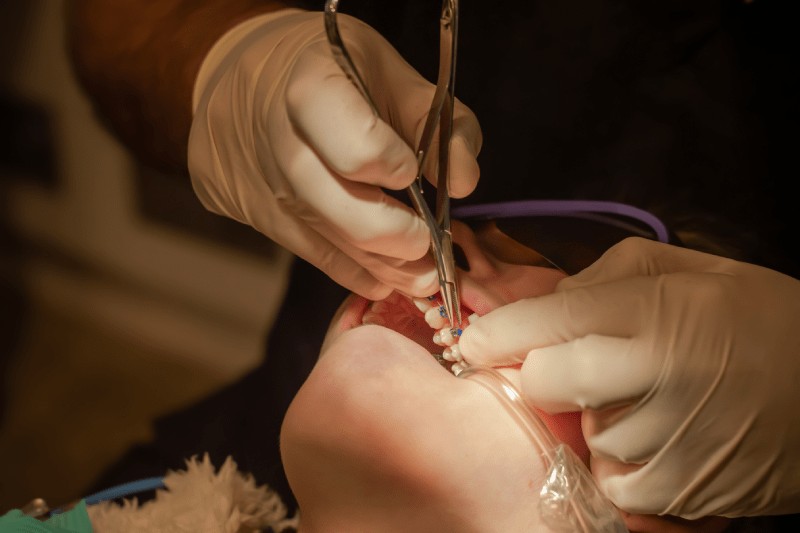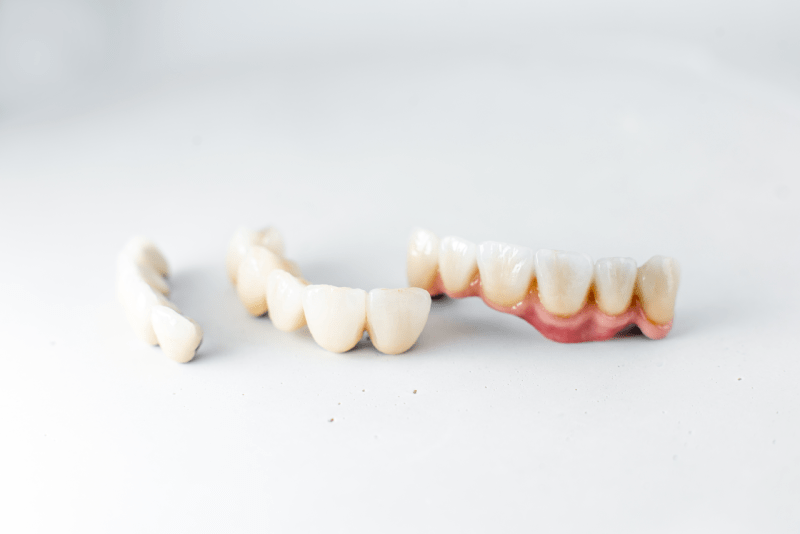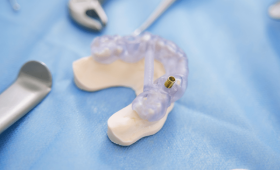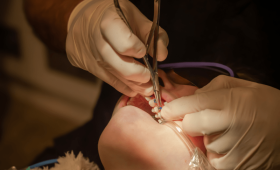What Are Veneers and When Are They Used?
Dental veneers are thin layers of porcelain or composite material that are bonded to the front surface of teeth. These aesthetic applications are used to address issues such as tooth discoloration, stains, small gaps, misshapen teeth, or minor misalignment. The application process requires minimal tooth preparation, preserving the natural tooth structure while achieving a whiter, straighter, and more aesthetic smile. They are generally preferred when teeth whitening procedures are not effective or when a permanent solution is desired.
How Much Do Veneers Cost in Paris, France?
In Paris, the cost of dental veneers is quite high, similar to other major European cities. The cost for a single porcelain laminate veneer typically ranges from 900 Euros to 1,800 Euros. This price depends on the dentist’s experience, the clinic’s location, and the quality of the material used. For a smile makeover involving multiple teeth, the total cost can reach tens of thousands of Euros. For this reason, treatment in Paris can be financially very challenging for many patients.
Why Are Veneer Prices More Attractive in Turkey?
The main reasons why veneer prices are more affordable in Turkey include the favorable exchange rate difference and lower labor and operational costs. The value of the Turkish Lira against the Euro makes treatment much more economical for patients coming from Europe. Even though clinics invest in high technology and quality materials, staff salaries, rent, and other expenses are lower compared to Western Europe. This is the most important factor that makes Turkey stand out in international health tourism.
What Are the Advantages and Disadvantages of Getting Veneers in Paris?
The biggest advantage of getting veneers in Paris is that the patient can receive treatment in or near their home country. This provides the opportunity for follow-up appointments and quick intervention in case of any issues. Communication is also easily managed in the patient’s native language or a common one. The biggest disadvantage, however, is the cost. High prices create a significant budget obstacle, especially for patients planning a comprehensive smile makeover. Additionally, some clinics may have long waiting times for treatment.
What Are the Advantages and Disadvantages of Getting Veneers in Turkey?
The most obvious advantage of getting veneers in Turkey is undoubtedly receiving high-quality treatment at a much more affordable price. Turkish dentists are highly competent in serving international patients, thanks to their experience in the field of dental tourism. The disadvantages include additional travel and accommodation costs, and the need to travel again for an in-person consultation in case of an emergency. However, most clinics offer online consultation services to manage this situation.
What Factors Influence the Cost of Veneers?
There are many factors that determine the cost of dental veneers. First and foremost is the type of material used (porcelain, zirconium, laminate, etc.). As the quality and durability of the material increase, so does the price. The dentist’s experience, the technological equipment of the clinic, and the total number of teeth that need to be veneered also have a direct impact on the cost. Additional procedures such as cleaning tooth decay or root canal treatment before the veneer procedure can also increase the total bill.
What Are the Differences Between Zirconium and Porcelain Veneers?
Zirconium and porcelain are the two main materials most commonly used for veneers, and they have different characteristics. Porcelain veneers offer the most natural aesthetic appearance and light translucency, making them ideal for front teeth. Zirconium veneers, on the other hand, have a more durable and harder structure than porcelain. This feature makes them a preferred option for back teeth and areas with intense chewing pressure. Both materials are stain-resistant and long-lasting.
What Technologies Do Dental Clinics in Paris Use?
Modern dental clinics in Paris generally use the latest technology. Tools such as CAD/CAM (computer-aided design and manufacturing) systems, digital smile design, 3D intraoral scanners, and laser technologies are commonly found. These technologies speed up the treatment process, make it less invasive, and ensure more precise results. However, the use of these advanced technologies further increases treatment costs and is generally reflected in high prices.

How Long Does the Veneer Procedure Take?
The duration of the veneer procedure varies depending on the technology used. While veneers made with traditional methods usually take several sessions, some clinics can complete the procedure in a single day thanks to CAD/CAM technology. In the first session, the teeth are prepared and impressions are taken. Temporary veneers are used while the permanent veneers are being made in the lab. In the second session, the permanent veneers are placed on the teeth. For patients traveling to Turkey, the entire process is usually completed within 3 to 7 days.
How Many Sessions Are Needed?
The veneer procedure generally requires two or three sessions. In the first session, the dentist performs a minimal preparation on your teeth for the veneers to be placed and takes digital or traditional impressions. In the second session, the permanent veneers are tried on and finalized. If necessary, minor adjustments are made, and if the patient approves, the veneers are permanently bonded.
Is the Veneer Procedure Painful?
During the veneer procedure, no pain or discomfort is typically felt thanks to the local anesthesia administered by the dentist. After the procedure, temporary sensitivity in the teeth may be experienced, but this goes away on its own within a few days. Your dentist will provide the necessary advice to manage this sensitivity. In rare cases, post-procedure pain may occur, but this can usually be managed with simple painkillers.
Is the Quality of Veneers in Turkey on Par with Paris?
The quality of veneers in Turkey can be at the same or similar standards as clinics in Paris, in terms of the materials and technology used. Turkey is home to many modern clinics that have international accreditations and work with materials imported from Europe or the USA. Quality depends on the experience of the chosen dentist and the service standard of the clinic, not on the country. Therefore, it is possible to receive high-quality service in Turkey by conducting proper research.
Do Veneers Look Natural?
Modern veneers offer a very natural aesthetic that is very similar to natural teeth. Materials like porcelain and zirconium reflect light just like natural tooth enamel. For the determination of the correct color and shape, the dentist and the lab technician work together. Professionally made veneers do not look artificial and integrate with the patient’s facial structure and other teeth, adding a natural beauty to the smile. Choosing a dentist with an aesthetic understanding is crucial for a successful result.
Who Are the Most Suitable Candidates?
The most suitable candidates for veneers are individuals with good overall oral health but who have aesthetic concerns. Veneers are an ideal solution for stained, discolored, chipped, or slightly crooked teeth. Having healthy gums and not having habits like teeth grinding are important criteria for the success of the treatment. The dentist will decide if the veneer treatment is suitable for you after a comprehensive examination.
What to Consider Before Getting Veneers?
The most important step before getting veneers is to choose a reliable clinic and an experienced dentist. It is helpful to review the dentist’s previous work, patient reviews, and references. You should also get detailed information about the materials to be used, the treatment process, and possible additional costs. If you have existing oral health problems (such as cavities, gum disease, etc.), they should be treated before the veneer procedure begins.
How Long Do Veneers Last?
The lifespan of veneers varies depending on the material used and the patient’s oral hygiene. Porcelain veneers can generally last for 10-15 years or longer, while composite veneers may need to be replaced after 5-7 years. Good oral hygiene (regular brushing, flossing) and periodic dental check-ups extend the life of the veneers. It is also important to avoid biting into hard foods and to protect against teeth grinding habits.
Are Veneers Permanent?
Although veneers are permanently bonded to the natural teeth, their lifespan is limited and they do not last forever. Factors such as aging, gum recession, or wear on the veneers can necessitate their replacement over time. Dental check-ups are crucial for monitoring the condition of the veneers and diagnosing potential problems early. Therefore, veneers should be seen as an investment that requires periodic maintenance.
What is the Difference Between Veneers and Whitening?
Dental veneers and teeth whitening are two different methods used to improve dental aesthetics. Teeth whitening is a cosmetic procedure used to lighten the natural color of teeth and is only effective for color issues. Veneers, on the other hand, are used to correct more serious aesthetic problems such as the shape, size, and minor misalignment of the teeth in addition to their color. Veneers offer a more comprehensive and permanent aesthetic solution than whitening.
How to Eat After Getting Veneers?
For the first few days after getting veneers, it is helpful to avoid very hot or cold foods and drinks to reduce temporary sensitivity. Additionally, it is recommended to stay away from hard and sticky foods for the first 24 hours to allow the adhesive to fully harden. After that, you can return to your normal diet. However, it is important to avoid biting into hard-shelled foods to extend the life of the veneers.
What Should Be Considered for Veneers?
The most important things to consider in veneer treatment are the dentist’s experience and the quality of the clinic. The harmony of the veneer with the gum and the fit of the edges are very important. A poorly made veneer can lead to gum inflammation and tooth decay. Therefore, it is of great importance to check the dentist’s references and the quality of the materials used before the procedure. Regular oral hygiene after treatment is also a critical factor for the health of the veneers.
What Are the Advantages of Zirconium Veneers?
Zirconium veneers offer a perfect balance between aesthetics and durability. Unlike metal-supported veneers, a dark line does not form at the gum line, and they provide a natural look. As a biocompatible material, it does not cause allergic reactions. Zirconium is highly resistant to chewing forces and is resistant to chipping. These features make it a suitable option for both front and back teeth.
For Which Teeth Are Laminate Veneers Suitable?
Laminate veneers are very thin porcelain layers bonded to the front surface of the teeth and are generally used for aesthetic reasons. These veneers are ideal for correcting discoloration, minor misalignments, fractures, or closing gaps between teeth, especially in the front teeth. The application of laminate veneers is less invasive than other types of veneers because very little or no tooth surface is removed. This is a great advantage in terms of preserving the natural tooth structure.
Do Veneers Protect Against Tooth Decay?
While veneers protect the front surface of the veneered tooth, they do not completely prevent decay of the natural tooth underneath. Plaque can accumulate at the junction of the veneer and the tooth, which increases the risk of decay. Therefore, even with veneers, regular brushing, flossing, and periodic dental check-ups are of vital importance. Good oral hygiene is indispensable for protecting the health of both the veneers and the natural teeth.
How Do Veneers Affect Gum Health?
Correctly applied veneers do not negatively affect gum health. It is important that the edges of the veneer do not go below the gum line and that they are in full harmony with the gums. A poorly made veneer can lead to gum inflammation and recession. Therefore, the experience of the dentist and the precision of the technology used are critically important. Regular brushing and flossing after the procedure help maintain gum health.
What Needs to Be Done Before the Procedure?
Before starting the veneer procedure, a comprehensive intraoral examination by the dentist is required. The health of the teeth and gums is checked. If there are cavities, gum diseases, or other oral health problems, these issues must be treated before proceeding with the veneer procedure. Procedures such as dental cleaning and whitening can also be done before deciding on the veneer color. This ensures that the veneers are more compatible with the natural teeth.
The Importance of Lab Quality?
The success of dental veneers largely depends on the quality of the dental laboratory used. Dental lab technicians use the dentist’s impressions to produce the veneers with high precision. High-tech laboratories use digital systems like CAD/CAM to perfect the shape, size, and color harmony of the veneers. A dentist who works with a good laboratory can provide more aesthetic and durable results to their patients. Therefore, the quality of the laboratory should also be considered when choosing a clinic.

What Are the Possible Complications?
Rarely, some complications may occur after the veneer procedure. These include the veneer cracking, the adhesive loosening causing the veneer to fall off, gum inflammation, or increased tooth sensitivity. Additionally, tooth decay under the veneers is a rare occurrence. These complications usually result from an improperly applied veneer or insufficient oral hygiene on the part of the patient.
What Is the Most Ideal Age Range?
While there is no specific age limit for dental veneer procedures, they are suitable for individuals aged 18 and older whose teeth and jaw structure have fully developed. In young people whose teeth and jaw development are still ongoing, permanent treatments like veneers may not be able to adapt to changes in the tooth structure. The dentist evaluates each patient’s situation individually and determines the most suitable timing for veneers. Therefore, a comprehensive evaluation is necessary before starting treatment for young patients.
Does the Veneer Color Change?
Porcelain and zirconium veneers are highly resistant to staining substances like cigarettes, coffee, and tea, and their color does not change over time. These veneers are stain-resistant due to their smooth surface. However, if you have natural teeth next to your veneers, these teeth may stain over time. Therefore, when choosing the veneer color, it should be considered whether the natural teeth will be whitened in the future.
Does Veneer Removal Harm the Tooth?
A veneer is bonded to the tooth surface with a very strong adhesive, and special tools are used to remove it. This procedure generally does not harm the natural tooth structure because a minimal preparation is done on the tooth. However, if incorrect or forceful methods are used, the tooth surface can be damaged. The veneer removal procedure must be performed by an experienced dentist. After the veneer is removed, a new veneer or a protective procedure may be needed to restore the tooth to its former state.
Why Are Reviews and References Important?
Before getting veneers, reviewing the references and patient reviews of the clinic and the dentist is very helpful in the decision-making process. Real patient experiences can give you important information about the dentist’s expertise, the clinic’s hygiene standards, and the quality of service. Photo references allow you to see the dentist’s aesthetic sense and the results they have achieved for previous patients. This is an important step to choose the right clinic and clarify your expectations.
How to Plan Accommodation and Travel in Turkey?
For those planning to get veneer treatment in Turkey, many clinics offer support with accommodation and travel planning. The treatment package often includes airport transfers and accommodation. The initial consultation and assessment process is usually done online or through photos. Patients should plan for a stay of 3 to 7 days, depending on the duration of the treatment. Contacting the clinic in advance to discuss these details makes the process easier.
What Materials Are Used in the Treatment?
The materials used in the dental veneer procedure vary. The most common ones are porcelain, zirconium, laminate, and composite. Porcelain and zirconium stand out for their durability and aesthetics. Laminate veneers provide aesthetic results with minimal preparation. Composite veneers are a more economical option and can usually be completed in a single session. Your dentist will determine the most suitable material for you based on your aesthetic expectations and budget.
What Information Should Be Requested from the Dentist?
Before getting veneers, you should ask your dentist for detailed information about the treatment plan, the materials to be used, the duration of the treatment, the total cost, and possible additional expenses. You should also ask about the dentist’s experience in this field, examples of previous cases, and the clinic’s hygiene standards. Getting clear and satisfactory answers to all your questions is an indicator that you are working with a trustworthy dentist.
Are Health Tourism Companies Reliable?
Many of the health tourism companies that provide services for dental veneer treatments in Turkey are reliable. These companies organize travel, accommodation, and treatment processes for patients. When choosing a company, it is important to research their references, certifications, and the details of the service they offer. A reliable company provides transparent pricing and supports you throughout the treatment process. However, communicating directly with the clinic is always a better option.
Do Veneers Make Teeth Whiter?
Yes, dental veneers make teeth whiter and brighter. Veneers are more resistant to stains than natural teeth. Your dentist will determine the most suitable shade of white for you. For a natural look, a color that is compatible with your skin tone and mouth structure is chosen. Your veneers will maintain their brightness and whiteness for a long time without the need for future teeth whitening.
When Is a New Veneer Needed?
A dental veneer is an aesthetic solution that generally needs to be replaced after 10-15 years. Situations where a dental veneer needs to be replaced include chipping, cracking, the formation of a gap at the edges, or a deterioration in its aesthetic appearance. In addition, the edges of the veneer becoming visible due to gum recession may also necessitate a new veneer. Regular dental check-ups are important for identifying these situations.



